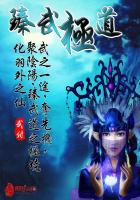But he would frisk out in joyous welcome to meet and fawn upon tramps or peddlers who sought to invade The Place. He could scarce learn his own name. He could hardly be taught to obey the ******st command. As for shaking hands or lying down at order (those two earliest bits of any dog's education), they meant no more to Bruce than did the theory of quadratic equations.
At three months he launched forth merrily as a chicken-killer;gleefully running down and beheading The Place's biggest Orpington rooster. But his first kill was his last. The Master saw to that.
There is no use in thrashing a dog for killing poultry. There is but one practically sure cure for the habit. And this one cure the Master applied.
He tied the slain rooster firmly around Bruce's furry throat, and made the puppy wear it, as a heavy and increasingly malodorous pendant, for three warm days and nights.
Before the end of this seventy-two-hour period, Bruce had grown to loathe the sight and scent of chicken. Stupid as he was, he learned this lesson with absolute thoroughness,--as will almost any chicken-killing pup,--and it seemed to be the only teaching that his unawakened young brain had the power to grasp.
In looks, too, Bruce was a failure. His yellowish-and-white body was all but shapeless. His coat was thick and heavy enough, but it showed a tendency to curl--almost to kink--instead of waving crisply, as a collie's ought. The head was coarse and blurred in line. The body was gaunt, in spite of its incessant feedings. As for contour or style--It was when the Master, in disgust, pointed out these diverse failings of the pup, that the Mistress was wont to draw on historic precedent for other instances of slow development, and to take in vain the names of Thackeray, Lincoln, Washington and Bismarck and the rest.
"Give him time!" she urged once. "He isn't quite six months old yet; and he has grown so terribly fast. Why, he's over two feet tall, at the shoulder, even now--much bigger than most full-grown collies. Champion Howgill Rival is spoken of as a 'big' dog; yet he is only twenty-four inches at the shoulder, Mr. Leighton says.
Surely it's something to own a dog that is so big.""It IS 'something,'" gloomily conceded the Master. "In our case it is a catastrophe. I don't set up to be an expert judge of collies, so maybe I am all wrong about him. I'm going to get professional opinion, though. Next week they are going to have the spring dogshow at Hampton. It's a little hole-in-a-corner show, of course. But Symonds is to be the all-around judge, except for the toy breeds. And Symonds knows collies, from the ground up. I am going to take Bruce over there and enter him for the puppy class. If he is any good, Symonds will know it. If the dog is as worthless as I think he is, I'll get rid of him. If Symonds gives any hope for him, I'll keep him on a while longer.""But," ventured the Mistress, "if Symonds says 'Thumbs down,'
then--"
"Then I'll buy a pet armadillo or an ornithorhynchus instead,"threatened the Master. "Either of them will look more like a collie than Bruce does.""I--I wonder if Mr. Symonds smokes," mused the Mistress under her breath.
"Smokes?" echoed the Master. "What's that got to do with it?""I was only wondering," she made hesitant answer, "if a box of very wonderful cigars, sent to him with our cards, mightn't perhaps--""It's a fine sportsmanly proposition!" laughed the Master. "When women get to ruling the world of sport, there'll be no need of comic cartoons. Genuine photographs will do as well. If it's just the same to you, dear girl, we'll let Symonds buy his own cigars, for the present. The dog-show game is almost the only one I know of where a judge is practically always on the square. People doubt his judgment, sometimes, but there is practically never any doubt of his honesty. Besides, we want to get the exact dope on Bruce. (Not that I haven't got it, already!) If Symonds 'gates'
him, I'm going to offer him for sale at the show. If nobody buys him there, I'm going--""He hasn't been 'gated' yet," answered the Mistress in calm confidence.
At the little spring show, at Hampton, a meager eighty dogs were exhibited, of which only nine were collies. This collie division contained no specimens to startle the dog-world. Most of the exhibits were pets. And like nearly all pets, they were "seconds"--in other words, the less desirable dogs of thoroughbred litters.
Hampton's town hall auditorium was filled to overcrowding, with a mass of visitors who paraded interestedly along the aisles between the raised rows of stall-like benches where the dogs were tied; or who grouped densely around all four sides of the roped judging-ring in the center of the hall.
For a dogshow has a wel-nigh universal appeal to humanity at large; even as the love for dogs is one of the primal and firm-rooted human emotions. Not only the actual exhibitor and their countless friends flock to such shows; but the public at large is drawn thither as to no other function of the kind.
Horse-racing, it is true, brings out a crowd many times larger than does a dogshow. But only because of the thrill of winning or losing money. For where one's spare cash is, there is his heart and his all-absorbing interest. Yet it is a matter of record that grass is growing high, on the race-tracks, in such states as have been able to enforce the anti-betting laws. The "sport of kings"flourishes only where wagers may accompany it. Remove the betting element, and you turn your racetrack into a huge and untrodden lot.
There is practically no betting connected with any dogshow.
People go there to see the dogs and to watch their judging, and for nothing else. As a rule, the show is not even a social event.
Nevertheless, the average dogshow is thronged with spectators.















